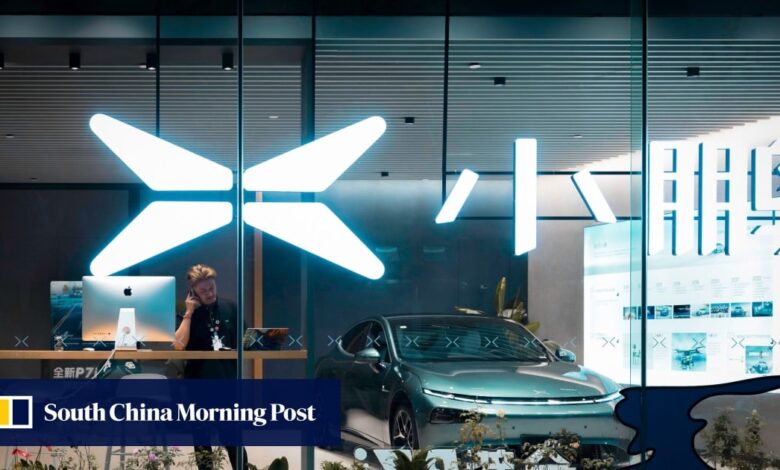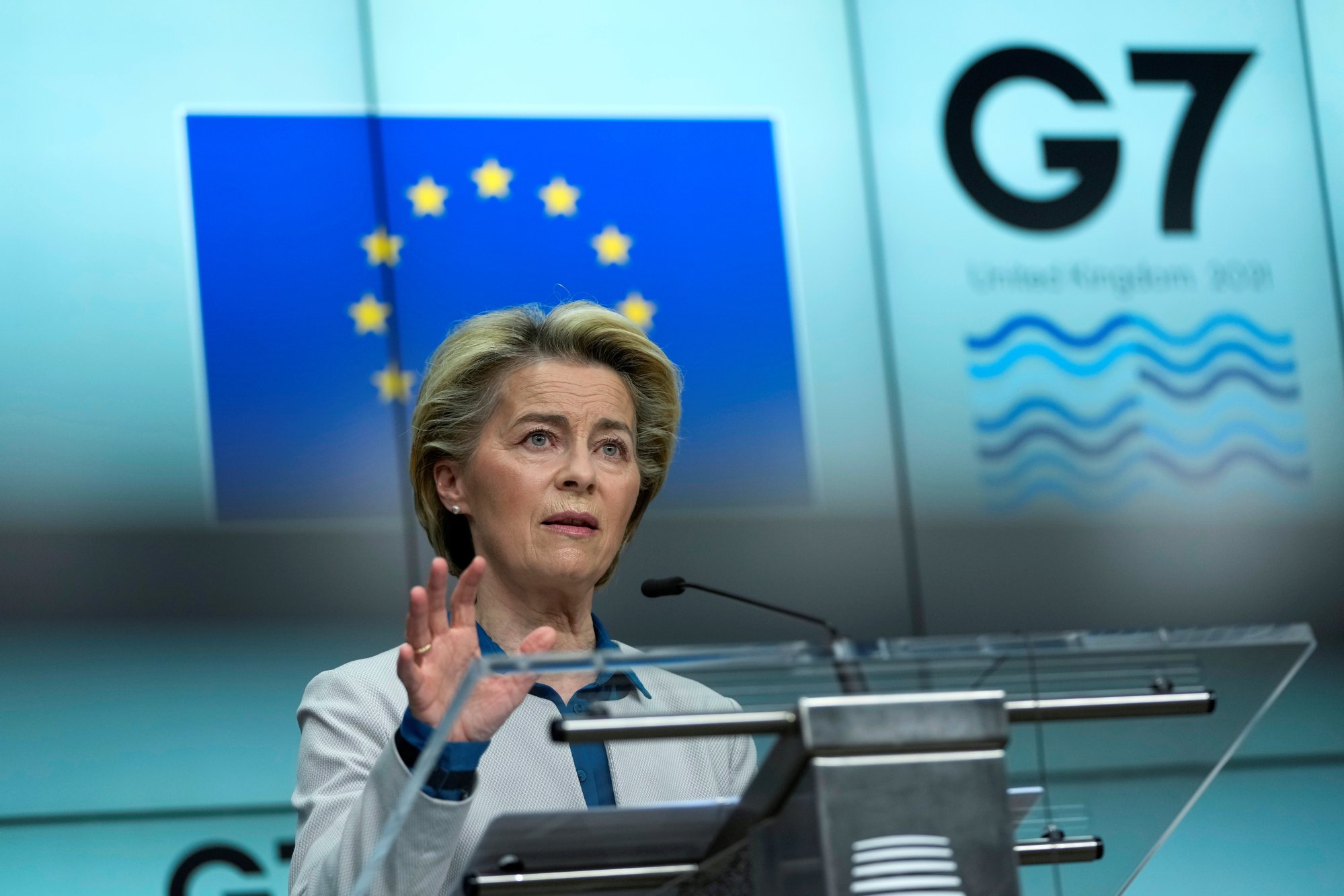How severe is the impact on Chinese EV makers after EU launches an anti-subsidy investigation

[ad_1]
A potential decision to impose tariffs higher than the standard 10 per cent rate for Chinese-made electric cars in the European Union (EU) may also trigger a retaliatory measure by Beijing to curb imports of European-made vehicles, analysts say.
“The investigation is a serious matter for the Chinese EV makers because a higher tariff could put a stumbling block to export growth of their cars to Europe,” said David Zhang, a visiting professor at Huanghe Science and Technology College. “It may trigger a chain reaction because Beijing can slap punitive tariffs on European-made cars, too.”

“Global markets are now flooded with cheaper electric cars. And their price is kept artificially low by huge state subsidies,” commission President Ursula von der Leyen said in her annual address to the bloc’s parliament.
It will take the commission as long as 13 months to assess whether to impose additional tariffs on Chinese EVs, which have been gaining popularity around the world this year, particularly in Southeast Asia and Latin America.
China’s lead over the US in EV markets is huge, but not insurmountable
China’s lead over the US in EV markets is huge, but not insurmountable
Swiss bank UBS predicted earlier this month that Chinese-made cars, benefiting from the country’s comprehensive supply chain and improved manufacturing technique, will control 33 per cent of the global market by 2030, up from 17 per cent last year, bolstered by rising electric car sales.
By 2030, Chinese carmakers will take a 20 per cent share of the market, or about 2 million units, in Europe, and most of the vehicles sold in the continent will be powered by battery, it added.
“We believe Chinese EV exports should not be affected in the short term, and going forward, Chinese EV makers are expected to diversify exports to other countries and regions,” Everbright Securities analysts said in a research note on Thursday, which added that domestic demand should continue to rise enticed by falling car prices with costs expected to decline further as industrial chains and technical innovations develop. It estimated that Chinese-made EVs are already on average 20 per cent cheaper than their EU-manufactured peers.
A report by Sinolink Securities said Chinese carmakers sold a total 89,000 EVs in the EU from January to July this year, accounting for 4.8 per cent of the country’s total car exports in the same period.
“The EU’s intentions appear to be to restrict access to the European market for Chinese electric vehicles to protect the European EV industry,” Everbright analysts said in a report. “This also raises the question as to whether the USA, where Chinese EV import tariffs are similar, will follow suit.”
Alicia García Herrero, chief economist for Asia-Pacific at Natixis Corporate and Investment Bank, warned last month that Chinese EV makers’ go-global goals are at risk.
“Geopolitical tensions and protectionist measures will further complicate this process.,” she said in a research report. “Given that China’s EV production remains highly competitive, the key question is whether the growing chorus for de-risking from China, especially in the area of green technologies such as EVs, may undermine global decarbonisation efforts.”
Research firm Canalys predicted in June that China’s overseas sales of pure electric and plug-in hybrid vehicles were expected to reach 1.3 million units in 2023, almost double the 679,000 units last year.
They will contribute to a surge in combined exports of petrol and battery-powered vehicles to 4.4 million units from 3.11 million in 2022, the research firm added.
Chinese EVs were “value-for-money and high-quality products, and they can beat most foreign brands”, Canalys said.
China, the largest automotive and EV market worldwide, is set to overtake Japan as the globe’s largest auto exporter this year.
China exported 2.34 million vehicles in the first half, versus the 2.02 million Japanese cars exported as reported by the Japan Automobile Manufacturers Association. Japan exported 3.5 million vehicles in 2022.
EV sales on mainland China accounted for nearly 60 per cent of the global total in 2022, and total deliveries this year are expected to jump by 55 per cent to 8.8 million units, according to Gong of UBS.
[ad_2]
Source link




